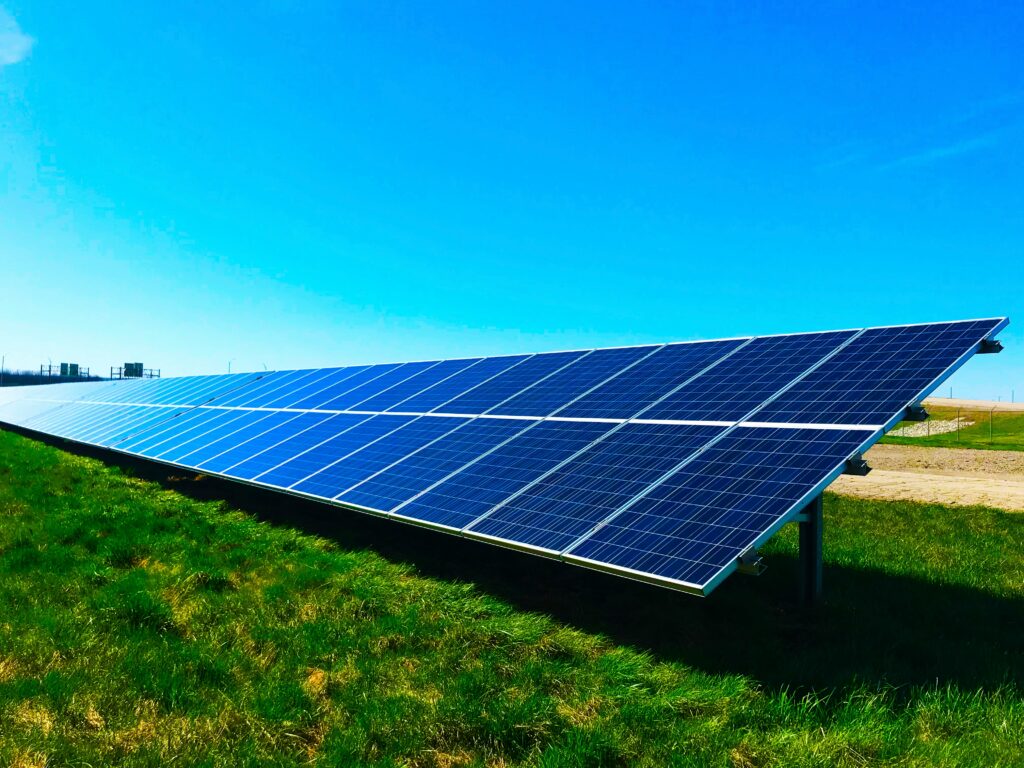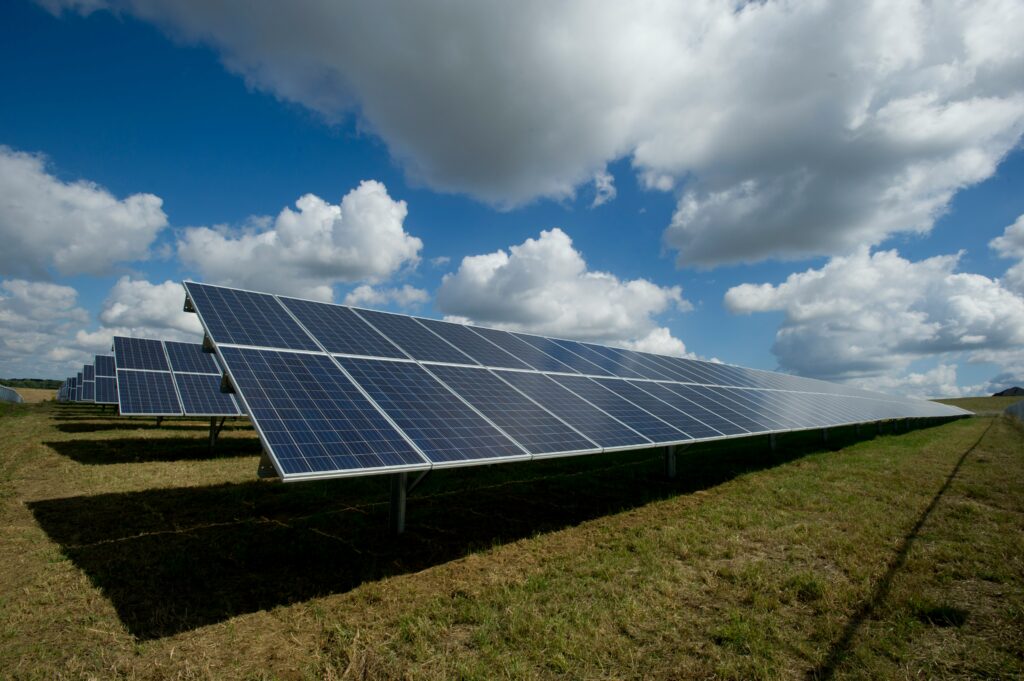Table of Contents
Introduction: How Many Solar Panels Do I Need to Install?
When you consider switching to solar energy, one of the most common questions that arises is, “How many solar panels do I need to install?” This question doesn’t have a one-size-fits-all answer, as the number of solar panels required depends on several factors such as your energy consumption, roof space, the climate in your area, and the efficiency of the panels you choose. In this article, we will break down everything you need to know to help you make an informed decision about how many solar panels are needed for your home.
Understanding Solar Panel Basics
Before determining how many solar panels you need, it’s essential to understand how solar panels work and their efficiency. A solar panel captures sunlight and converts it into electricity. The number of solar panels you need depends on your daily electricity usage, the location of your home, and the amount of sunlight your area receives throughout the year.
How Much Energy Do Solar Panels Generate?
On average, one solar panel can generate anywhere from 250 to 400 watts of power. The exact number depends on factors like the type of panel and the amount of sunlight your location receives. To determine how many panels you need, it’s crucial to consider your energy consumption in kilowatt-hours (kWh).
Do Solar Panels Work at Night?
Step 1: Calculate Your Average Energy Usage
The first step in answering “How many solar panels do I need to install?” is calculating your home’s average energy consumption. This is typically measured in kilowatt-hours (kWh). You can find this information on your monthly electricity bill, where your total energy usage is listed.
How to Calculate Your Monthly Energy Consumption:
- Look at your electric bill for the total number of kWh used each month.
- If you’re using more electricity during specific months, calculate your average monthly energy consumption.
- Multiply the total kWh by the number of hours in a day to get daily energy consumption.
By understanding your daily energy usage, you can calculate the number of solar panels required.

Step 2: Assess Your Solar Panel Efficiency
The efficiency of solar panels plays a significant role in determining how many you need. Panels that are more efficient will require fewer units to generate the same amount of energy. In general, higher-efficiency panels cost more but can save you money on installation in the long run.
Types of Solar Panels:
- Monocrystalline Solar Panels – Most efficient but more expensive.
- Polycrystalline Solar Panels – Less efficient but cost-effective.
- Thin-Film Solar Panels – Affordable but take up more space.
By factoring in the efficiency of the panels you are considering, you can reduce the number of panels required to meet your energy needs.
Unsure about which solar panel is right for you?
Get Expert Solar Panel Advice Now!
Step 3: Calculate the Number of Solar Panels You Need
Now that you know your daily energy usage and the efficiency of your solar panels, you can calculate the number of solar panels you need. Here’s the basic formula:
Number of Solar Panels = Daily Energy Usage (kWh) ÷ Solar Panel Output (kW)
For example, if your home uses 30 kWh per day, and the solar panel you choose generates 300 watts (0.3 kW), the calculation would be:
30 kWh ÷ 0.3 kW = 100 Solar Panels
Adjusting for Solar Panel Location
The location of your home also affects how much sunlight your panels receive. Homes in sunny areas will require fewer panels, while homes in cloudier areas will need more. Additionally, the orientation and angle of the panels can significantly impact their energy generation.
Want to find out how many solar panels you need based on your location?
Step 4: Consider Roof Space for Solar Panel Installation
Before committing to a solar panel installation, you need to check if your roof has enough space to accommodate the number of panels you need. The average solar panel is about 5.5 feet long by 3.25 feet wide, and you’ll need to account for gaps between panels for air circulation.
Factors to Consider:
- Roof Shape and Size – A larger, flatter roof can accommodate more panels.
- Roof Obstructions – Trees, chimneys, and other structures can limit the available space.
- Orientation – South-facing roofs typically receive the most sunlight.
Need help with roof space analysis?
Step 5: Additional Factors to Consider
While energy consumption, panel efficiency, and roof space are crucial factors, you should also consider:
- Budget – Higher-efficiency panels may cost more upfront but save you money in the long term.
- Incentives – Federal and state tax incentives may reduce installation costs.
- System Overhead – Some experts recommend installing extra panels (10-20%) to account for future energy usage or efficiency losses over time.

FAQ: How Many Solar Panels Do I Need to Install?
1. How many solar panels are needed for a 3-bedroom house?
The number of solar panels for a 3-bedroom house depends on your energy usage, but most homes of this size use about 30-40 solar panels to cover their needs.
2. How do I know if I have enough roof space for solar panels?
You can consult with a solar installer to measure your roof and determine if it can fit the number of solar panels required. They will also take into account shading and other obstructions.
3. Can I install fewer solar panels if I live in a sunny area?
Yes, homes in sunny areas will require fewer solar panels since they will receive more sunlight. However, the number will still depend on your daily energy usage.
4. Do solar panels work in cloudy or rainy climates?
Yes, solar panels can still generate power in cloudy or rainy climates, though they will not be as efficient as in sunny areas. Even in overcast conditions, solar panels can produce electricity, but they may need to be supplemented with more panels to meet your energy needs in areas with less sunlight.
5. How much roof space do I need to install solar panels?
The amount of roof space you need depends on the number of solar panels required for your energy needs. On average, each solar panel requires about 17.6 square feet of space. If your roof space is limited, you may need to consider higher-efficiency panels or a ground-mounted solar system.
6. Should I install more solar panels than I need?
It can be beneficial to install extra panels to cover future energy needs, especially if you plan to add energy-consuming appliances or if your system’s efficiency decreases over time. Experts often recommend installing 10-20% more panels than initially calculated to ensure long-term reliability.
7. How long do solar panels last?
Solar panels typically last between 25 to 30 years, with most manufacturers offering warranties for 20-25 years. After this time, the panels may still generate electricity but at a reduced efficiency.
8. How many solar panels do I need to power my entire house?
The number of solar panels needed to power your entire house depends on your energy usage, the efficiency of the panels, and how much sunlight your location receives. On average, a typical home may require 20 to 30 solar panels to cover all its energy needs. However, if you use a lot of electricity, such as with large appliances, electric vehicles, or air conditioning, you may need more panels.
9. How do I calculate my electricity usage to determine how many solar panels I need?
To calculate your electricity usage, check your electric bill for your monthly consumption in kilowatt-hours (kWh). Divide this number by the number of days in the month to get your daily kWh usage. Then, divide your daily usage by the wattage of the solar panels you plan to install. This will help you determine how many panels are needed to generate enough power for your home.
10. Can I reduce the number of solar panels by using energy-efficient appliances?
Yes, using energy-efficient appliances can reduce your overall electricity consumption, which in turn could lower the number of solar panels you need. Switching to LED lighting, energy-efficient HVAC systems, and appliances that use less power can significantly reduce your energy usage, allowing you to install fewer solar panels.
11. How does my location affect the number of solar panels needed?
Your geographic location plays a major role in how much sunlight your panels will receive. Areas with abundant sunlight, such as California, will require fewer panels compared to areas with less sunlight, like the Pacific Northwest. Solar power systems in sunnier regions will generate more electricity and, therefore, require fewer panels.
12. What is the difference between solar panel wattage and energy needs?
Solar panel wattage refers to the amount of electricity a single panel can generate under ideal conditions, typically between 250-400 watts. Your energy needs, on the other hand, refer to the total amount of electricity you use daily or monthly. By understanding the wattage of the panels and your daily energy consumption, you can calculate how many solar panels are necessary to meet your energy needs.
13. Should I install solar panels myself or hire a professional?
While some homeowners attempt DIY solar installations, it’s highly recommended to hire a professional installer. Solar panel installations require expertise in electrical work, local regulations, permits, and system design. A professional installer will ensure your system is set up correctly and is safe, compliant with local codes, and optimized for efficiency.
14. Can I expand my solar panel system later if I need more panels?
Yes, one of the advantages of solar power systems is that they can be expanded later if necessary. If your energy needs increase over time, you can add more solar panels to your existing system, provided that your roof has enough space, and your inverter can handle the additional load.
15. How do solar panels affect my home’s value?
Installing solar panels can increase the value of your home. Studies have shown that homes with solar panels tend to sell faster and for more money than those without. Potential buyers often view solar-powered homes as energy-efficient and cost-saving, making them more attractive in the real estate market.
16. Do I need a battery to store solar energy?
While a battery is not required for solar panels to work, it can be beneficial for storing excess energy generated during the day. This stored energy can be used at night or during cloudy periods, ensuring that you have power even when the sun isn’t shining. Many homeowners opt for a battery storage system to enhance their energy independence.
17. What incentives or rebates are available for installing solar panels?
There are numerous federal, state, and local incentives that can significantly reduce the cost of installing solar panels. The federal government offers a Solar Investment Tax Credit (ITC), which allows you to deduct 26% of your solar installation costs from your federal taxes (as of 2025). Additionally, some states and utilities offer rebates or credits for solar installations.
18. How long does it take to install solar panels?
The installation of solar panels typically takes between 1 to 3 days, depending on the size of the system and the complexity of the installation. This does not include the time required for permitting and inspections, which can add several weeks to the process.
19. Will solar panels still work during a power outage?
Traditional solar panel systems without battery storage will not work during a power outage unless you have a grid-tied system with a backup battery. However, if you install a solar battery, you can store power generated by the panels and use it during outages, keeping your lights on and appliances running.
Follow us on Facebook for Quick Response & Quires – 24/7 Task Connect